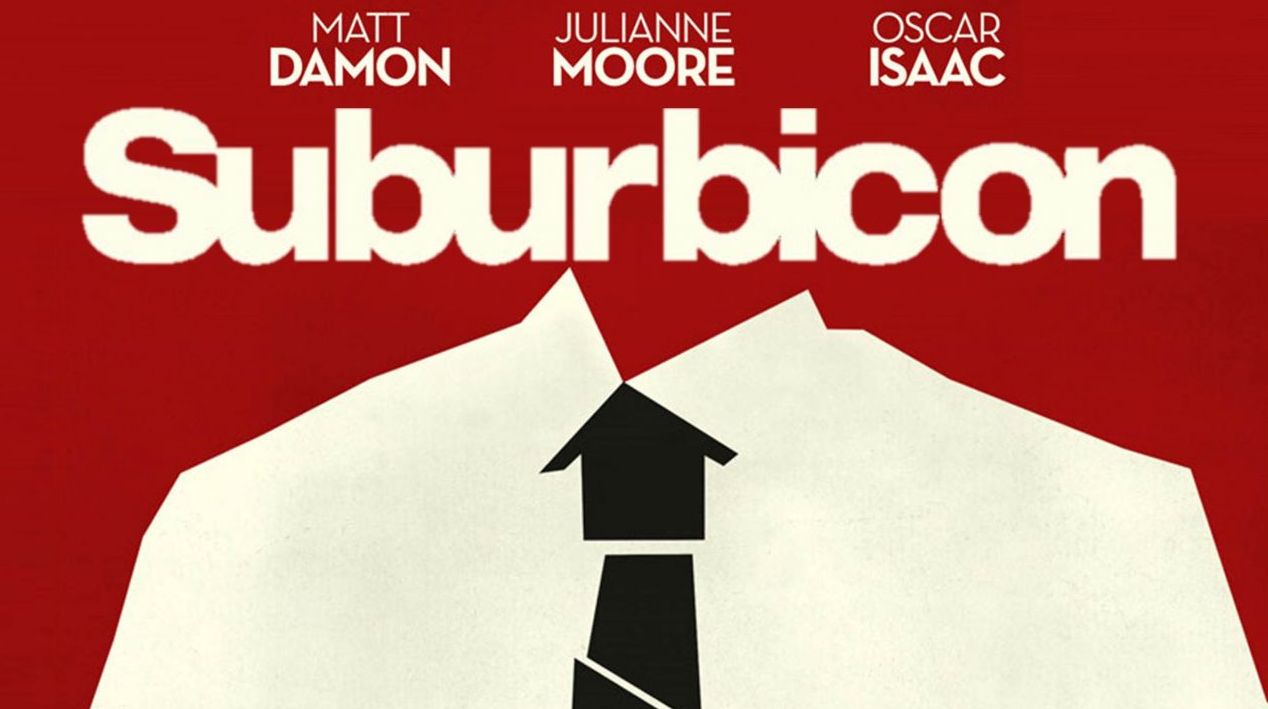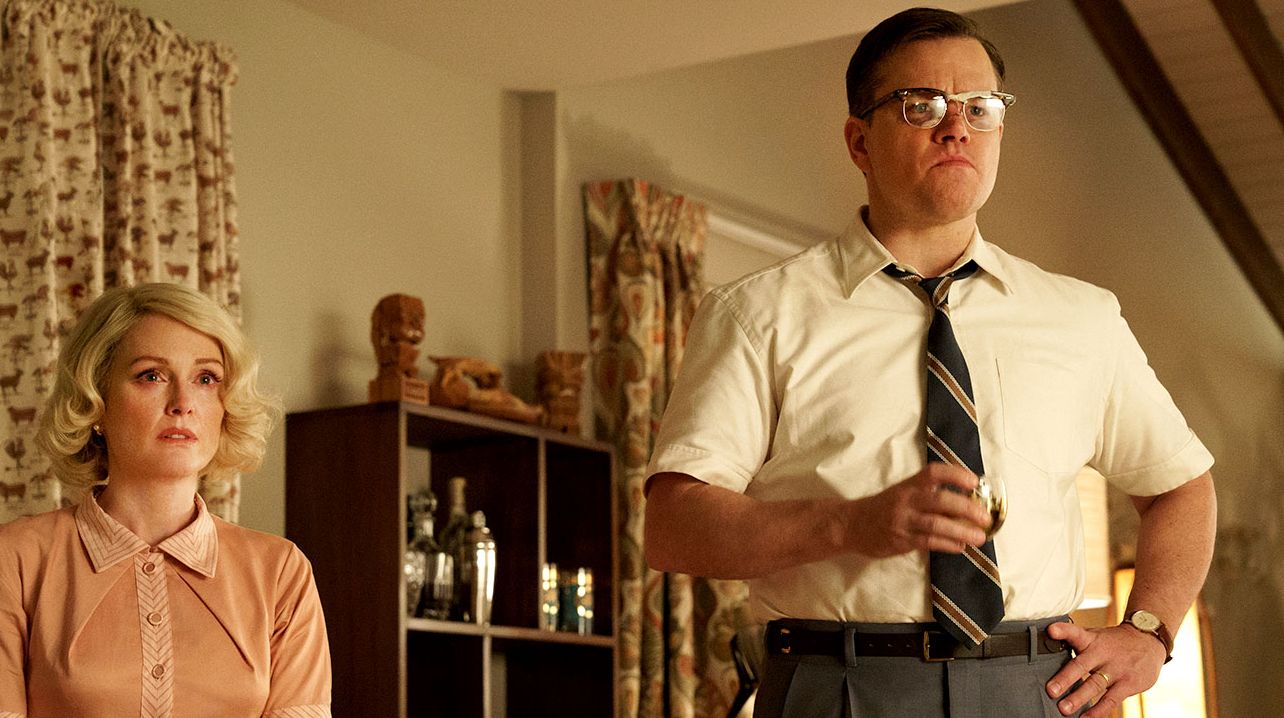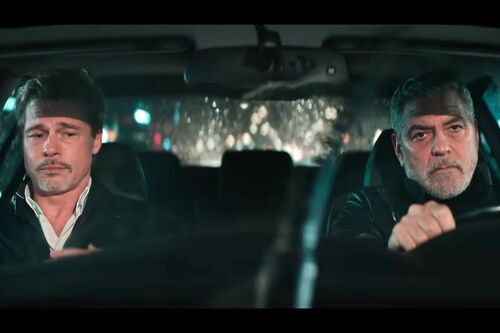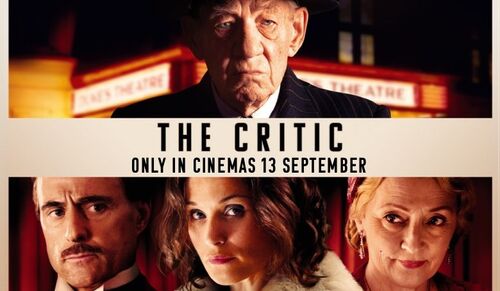
'Suburbicon' Review
 “Suburbicon” is George Clooney’s sixth directorial feature. He and frequent collaborator Grant Heslov also co-wrote the script, originally penned by the Coen Brothers way back in 1986. Of course, Coen Bros. material is usually quirky and “out there”, and “Suburbicon” is no exception. This is a peculiar, somewhat thought-provoking, but ultimately thin film.
“Suburbicon” is George Clooney’s sixth directorial feature. He and frequent collaborator Grant Heslov also co-wrote the script, originally penned by the Coen Brothers way back in 1986. Of course, Coen Bros. material is usually quirky and “out there”, and “Suburbicon” is no exception. This is a peculiar, somewhat thought-provoking, but ultimately thin film.
The setting is familiar: a squeaky-clean utopian town where things aren't as idyllic as they seem. The opening scene of “Suburbicon” is a PSA pitch showcasing all that the community has to offer. The exact geographic location of Suburbicon is never specified, but the year is 1959. It's 12 years since the first families moved in, coming from all over the country, to enjoy a peaceful, safe and wholesome lifestyle.
Clooney immediately sets a contrasting tone by delving into a hot topic not addressed in the marketing for the film: race. We meet the Meyers, the newest family to move into town. And they're Black - the first African-Americans in all-White Suburbicon. They're not exactly welcomed with open arms.
But just when we think integration will be the main theme of "Suburbicon", the focus shifts to the neighbors - the Lodges. Gardener (played by Matt Damon), his wife and her sister (both played by Julianne Moore) and their young son Nicky (Noah Jupe) are, on the surface, the normal American family. But businessman Gardner clearly has some financial problems, which trigger a series of events which take “Suburbicon” into the world of the offbeat narrative from which it can never escape. All signs begin to point to exactly where things eventually end-up, but the results still leave you with a bit unsettled.
And, the worst part, the means don't justify the end. All the strange circumstances and bizarre events don't result in any insightful revelations. In a USA Today interview, Clooney referred to “Suburbicon” as “a movie that says, ‘You’re looking in the wrong direction for your blame.’” And the director makes sure you get that point by pounding it home over and over throughout the film - including several characters exclaiming what a nice, peaceful place Suburbicon was before the Black people moved in. In fact, there's absolutely no relation between the two storylines, which makes Clooney's point irrelevant.

Damon and Moore are convincing as the more than slightly twisted leads. Damon recently addressed the dark tones and scenes, saying “I’ve never been able to do something like this in a movie.” However, Gardener and many of the other characters are intentionally robotic and rigid and cartoonish.
Oscar Isaac shows-up midway as an insurance fraud detective, and his character gives “Suburbicon” some much-needed spunk and edge. Longtime character actor Jack Conley has the perfect manner (and voice) as the wild card Lieutenant Hightower, while Jupe (who's also in the upcoming “Wonder”) plays Nicky straight, but believably. Clooney was stunned and thrilled that he did every scene in “one take every time.”
The look and set design feel right - a touch on the eery side, adding to “Suburbicon”’s awkward and uncomfortable tone. The off-balanced vibe works…to a point, but this story ends-up being too basic and safe. “Suburbicon” needed to dig a little deeper to become the type of provocative film it wants to be.
BTW: Josh Brolin was originally in “Suburbicon” as well. He filmed two scenes as Nicky’s baseball coach (we see the kid in his uniform a couple times but never on the field). But Clooney realized in the editing room that even though Brolin’s scenes were “the funniest in the movie”, they “let the air out of the balloon, in terms of tension in the film”.


